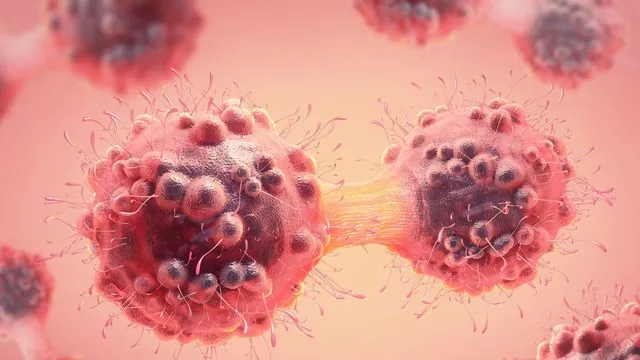
Revolutionary Drug Offers New Hope for Lung Cancer Patients with KRAS Mutations!
2024-12-10
Author: Yu
Groundbreaking Research
In groundbreaking research, an FDA-approved drug initially designed to combat multiple myeloma and lymphoma has demonstrated remarkable potential against a challenging form of lung cancer. A clinical trial spearheaded by scientists from the UT Southwestern Harold C. Simmons Comprehensive Cancer Center has yielded promising results, revealing that the drug selinexor can effectively shrink tumors in patients with non-small cell lung cancer (NSCLC) carrying KRAS mutations.
Significant Advancement in Lung Cancer Treatment
Published in the prestigious journal Clinical Cancer Research, the study represents a significant advancement in the fight against one of the most prevalent and difficult-to-treat forms of lung cancer. Dr. David E. Gerber, a key figure in this research and Professor of Internal Medicine, expressed optimism about the findings: “This novel treatment appears promising for one of the most common and difficult-to-treat forms of lung cancer.”
Statistics on Lung Cancer
According to the American Cancer Society, over 234,000 individuals are expected to be diagnosed with lung cancer in the United States this year, with approximately 85% falling under the NSCLC category. Alarmingly, about 25% of NSCLC patients harbor mutations in the KRAS gene—one of the most frequently mutated genes across various cancer types, including colorectal and pancreatic cancers.
Limited Effective Treatments for KRAS Mutations
Historically, effective targeted therapies for KRAS mutant lung cancer have been limited. Although Sotorasib and adagrasib, approved by the FDA in 2021 and 2022 respectively, have offered some hope, they only work in a small fraction of cases and provide temporary control. “Effective treatments for KRAS mutant lung cancer remain a major unmet clinical need,” states Dr. Mitchell S. von Itzstein, who co-led the study and serves as an Assistant Professor of Internal Medicine.
Selinexor's Potential
Several years ago, insights from UTSW scientists revealed that selinexor could kill cancer cells and reduce tumor size in preclinical models specifically with KRAS mutations. To further investigate this potential, the researchers enrolled 40 patients whose NSCLC had not responded to prior therapies, including chemotherapy and immunotherapy.
Clinical Trial Results
In a carefully formulated regimen, participants began taking selinexor weekly, followed by docetaxel, a standard chemotherapy agent. Imaging and blood tests were conducted regularly to monitor both tumor response and safety. While some side effects such as nausea and fatigue were noted, a remarkable 80% of patients experienced cancer control, exceeding expectations typical for docetaxel treatment alone.
Future Implications
Additionally, the research indicated that selinexor might exert anti-tumor effects independently, prompting plans for further investigation in upcoming clinical trials. The results suggest that selinexor could become a vital component in the treatment arsenal against lung cancer and may offer hope for treating other cancers with KRAS mutations.
Conclusion and Hope for Patients
As the scientific community eagerly looks forward to potential future therapies, Dr. Gerber emphasizes the significance of their findings, stating, “Selinexor could be a useful addition to our toolkit in treating lung cancer and offers new hope for patients grappling with KRAS-related malignancies.”
Call for Innovative Approaches
This study shines a light on the persistent need for innovative approaches in cancer treatment, particularly for patients who have exhausted available options. The path ahead may lead to transformational therapies that could redefine the landscape of cancer care.



 Brasil (PT)
Brasil (PT)
 Canada (EN)
Canada (EN)
 Chile (ES)
Chile (ES)
 España (ES)
España (ES)
 France (FR)
France (FR)
 Hong Kong (EN)
Hong Kong (EN)
 Italia (IT)
Italia (IT)
 日本 (JA)
日本 (JA)
 Magyarország (HU)
Magyarország (HU)
 Norge (NO)
Norge (NO)
 Polska (PL)
Polska (PL)
 Schweiz (DE)
Schweiz (DE)
 Singapore (EN)
Singapore (EN)
 Sverige (SV)
Sverige (SV)
 Suomi (FI)
Suomi (FI)
 Türkiye (TR)
Türkiye (TR)